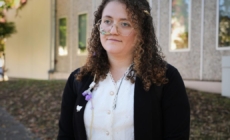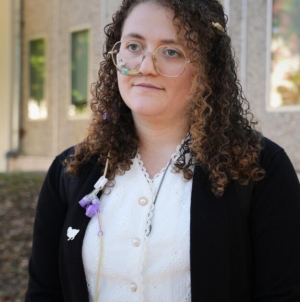The aim of the hospice and palliative care program, being implemented with the support of the Swiss-Hungarian Cooperation Program, is to improve the quality of home and institutional care and to enhance coordination, said the Deputy State Secretary for European Union Development Coordination at the Ministry of the Interior at a meeting related to the program on Wednesday in Budapest.
Judit Tóth emphasized that hospice and palliative care are not merely health care activities, but a human response to how we can be present in each other’s lives when patience and love are most needed. She said that the program aims to achieve its goals with a budget of 9.3 million Swiss francs (3.9 billion forints), coordinated by the National Hospital Directorate (OKFŐ), including through the further training of professionals and volunteers and the provision of information to the public.
The training courses, educational films, and new teaching materials not only impart knowledge, but also convey the value that every stage of human life is precious. For this reason, he added, we owe a debt of gratitude to all those who helped make the program a reality.
The development of hospice and palliative care is a priority for the Ministry of the Interior, especially because such care reinforces the human face of healthcare, said the deputy state secretary.
Alexander Renggli, Swiss Ambassador to Hungary, emphasized that a dignified end of life is a fundamental human right, which is enshrined in numerous international conventions of the United Nations. To this end, every state must create the necessary conditions.
The aim of the program is to reduce the length of avoidable hospital stays through better use of available resources and stronger coordination between doctors, nurses, carers and home care providers, which will also strengthen social cohesion.
The ambassador cited the example that, as in other European countries, life expectancy in Switzerland is increasing while the birth rate is declining. This means that between 2025 and 2050, the number of people over the age of 80 in Switzerland will double. This also shows that there is a growing need to strengthen hospice and palliative care.
Bálint Raffay, Deputy Director General of OKFŐ, pointed out that the five components of the program are strengthening regional care systems and integrated care units; targeting university-clinical centers; supporting home care; and providing further training and information for professionals and the general public.
Mária Deli, Director of Nursing at OKFŐ, said that the 13 training courses offered as part of the program will provide 62 teaching materials for the further training of 1,900 professionals: nurses, dieticians, physiotherapists, home and outpatient doctors, psychologists, and mental health professionals.
Offline and online information platforms will be set up to support the activities of relatives caring for their loved ones at home. These will contain basic nursing knowledge and serve as an authoritative source to help patients and their relatives navigate their daily lives, making everyday tasks easier, concluded Mária Deli.
Related article
Robotic Hand Assists Hearing Restoration Surgeries at Semmelweis University
Cochlear implant surgery is one of the most complex and precise ear surgeries for hearing loss.Continue reading
Via MTI; Featured image: Pexels
The post Joint Swiss Cooperation Aims to Revitalize Local Hospice Care appeared first on Hungary Today.
Source link































